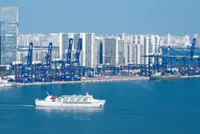THE European Union has been a world leader on climate change, passing groundbreaking legislation to reduce noxious greenhouse gasses. Now the world is pushing back.
Government officials and business groups around the globe have jacked up their lobbying in recent months to persuade EU officials to suspend a landmark environmental law aimed at protecting the planet’s endangered forests by tracing supply chains.





